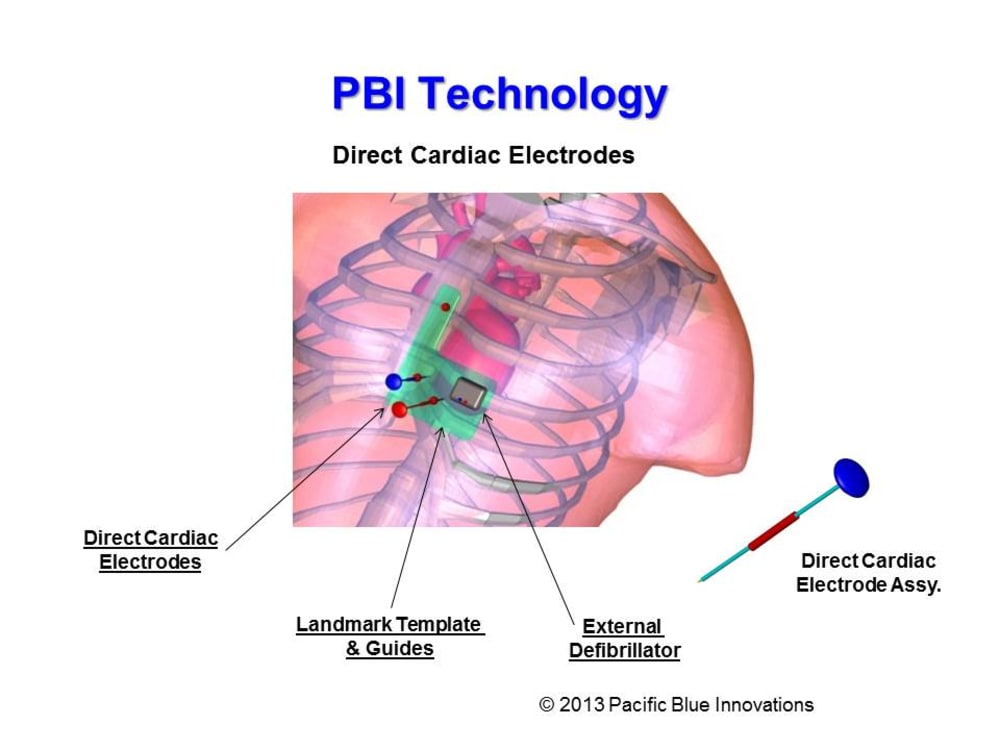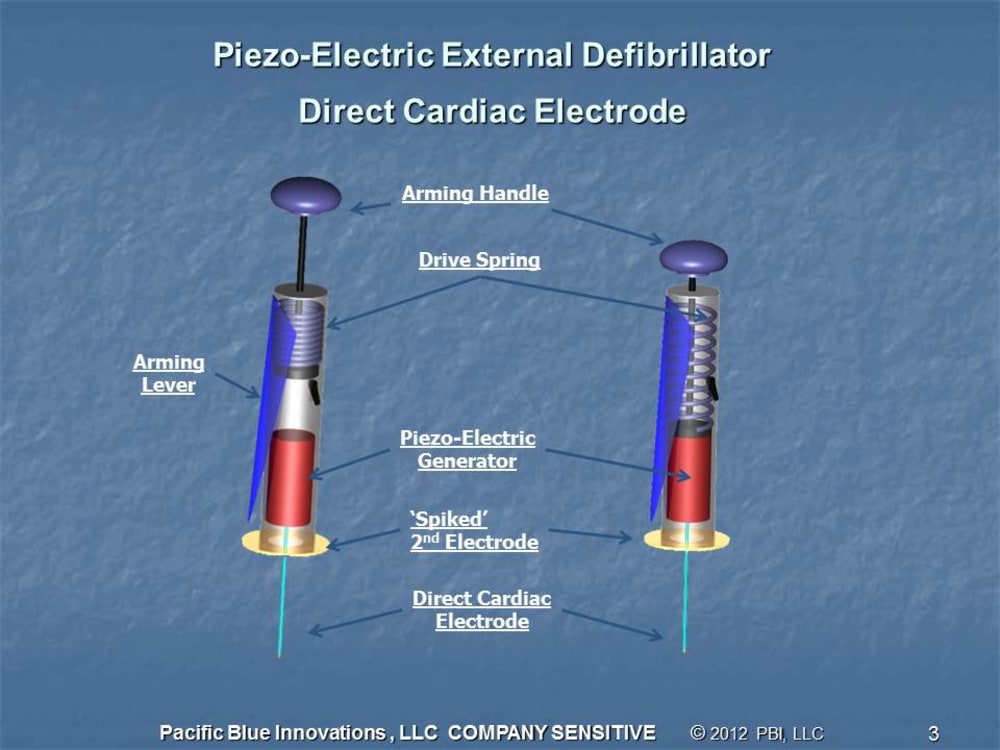
The new external defibrillator system would offer a 50x decrease in weight and 150x decrease in volume of the existing external field defibrillators, making it attractive for forward battlefield deployment by the US Armed Forces and for commercial/agency use.
For the latter, it would add defibrillation capability to first responders such as 'lightly equipped' motorcycle- and foot patrol policemen and other ‘roaming’ personnel. Timely application of defibrillation is universally accepted as being crucial for positive outcomes of a sudden heart attack due to a ventricular fibrillation.
Our underlying technology is based on the existing proven miniature implantable defibrillators. Our analysis shows that if the impedance of the skin is bypassed, defibrillation pulse energy demand is greatly reduced: from 300-400 Joules for external defibrillators down to 50-80 Joules for implantable ones.
Thus, there exist an opportunity to re-purpose internal defibrillators for external use, provided that a low impedance current path through the heart is established. In our system such low-impedance path is accomplished by the use of direct cardiac- and subcutaneous electrodes. A minor trauma resulting from their use is greatly outweighed by their benefits, since survival from a ventricular fibrillation depends very strongly on the speed of defibrillation administration, with death occurring within minutes without it (chances of survival diminish by 10% with every elapsed minute.)
Evaluations by the leading field trauma- and emergency surgeons at UCSD and USC medical schools and industry experts (at anonymous major defibrillator manufacturer) confirm the viability of PBI’s technical approach.
A battery-less ultra-miniature piezo-electric defibrillator system is also feasible with electrodes bypassing skin impedance.
-
Awards
-
 2013 Top 100 Entries
2013 Top 100 Entries
Like this entry?
-
About the Entrant
- Name:Gary Abramov
- Type of entry:individual
- Software used for this entry:various
- Patent status:pending








